In the wake of the latest film adaptation – this time by visionary director Denis Villeneuve – we wanted to do a deep dive on prints related to Frank Herbert’s legendary space opera, Dune.
With the first novel of the saga written in the 1960s, Dune has remained relevant throughout the decades, thanks to its fantastic locations, incredible character archetypes, and its framing of environmentalism as a radical act. From the technology to the great sandworms that roam the endless deserts of the planet Arrakis, there’s a ton of things just begging to be printed.
Whether you’re an ardent fan or a maker looking for something novel to print, read on for 10 of the best 3D printable models from the Duniverse. And if your printer still hasn’t recovered from the latest sandworm attack, try Craftcloud. Within just a few clicks, your model will be sent to a professional printing service to be printed in the material and finishes of your choice.
Crysknife (1984)
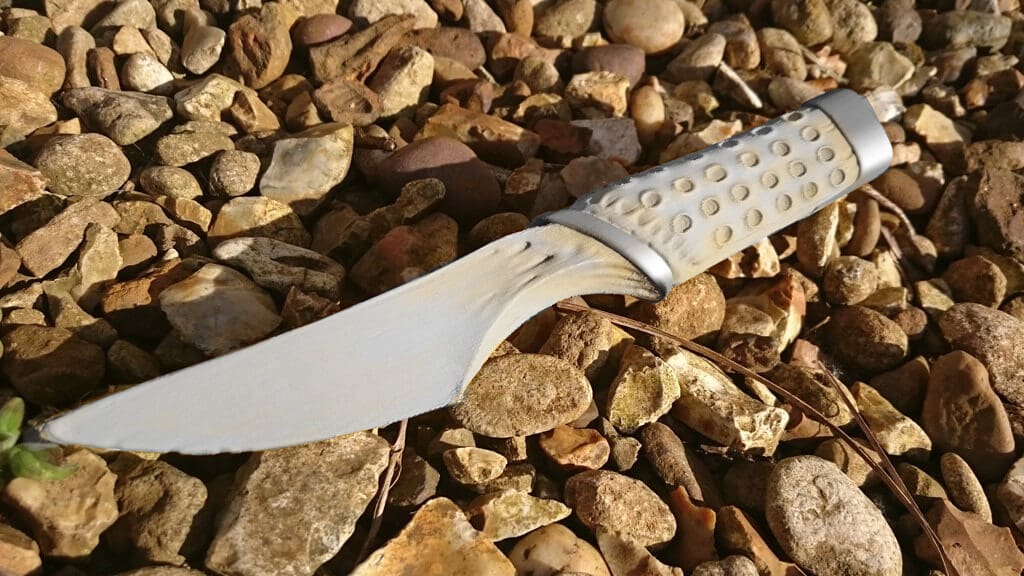
Made from the tooth of a sandworm, the Crysknife is probably one of the most important items a Fremen has on Arrakis, as more advanced weapons like lasguns and defensive shields tend to attract the huge worms. Both cultural artifact and vicious close-combat weapon, the Crysknife must be kept close to the body or will quickly degrade in the punishing environment of Arrakis. Luckily for us, we can make them out of more durable material, like PLA!
This model is a replica of the Crysknife design from the 1984 movie by David Lynch, though the design from the Dune miniseries can also be found on Thingiverse. The designer suggests printing with 10% infill on FDM printers as well as with supports. Alternatively, you can print it flat to the build plate as seen in this split remix, then glue the halves together – no supports needed!
- Who designed it? McKrats
- How printable/popular is it? With 15 makes and 4 remixes, plenty of people have added this to their collections!
- Where to find it? Thingiverse
Articulated Sandworm
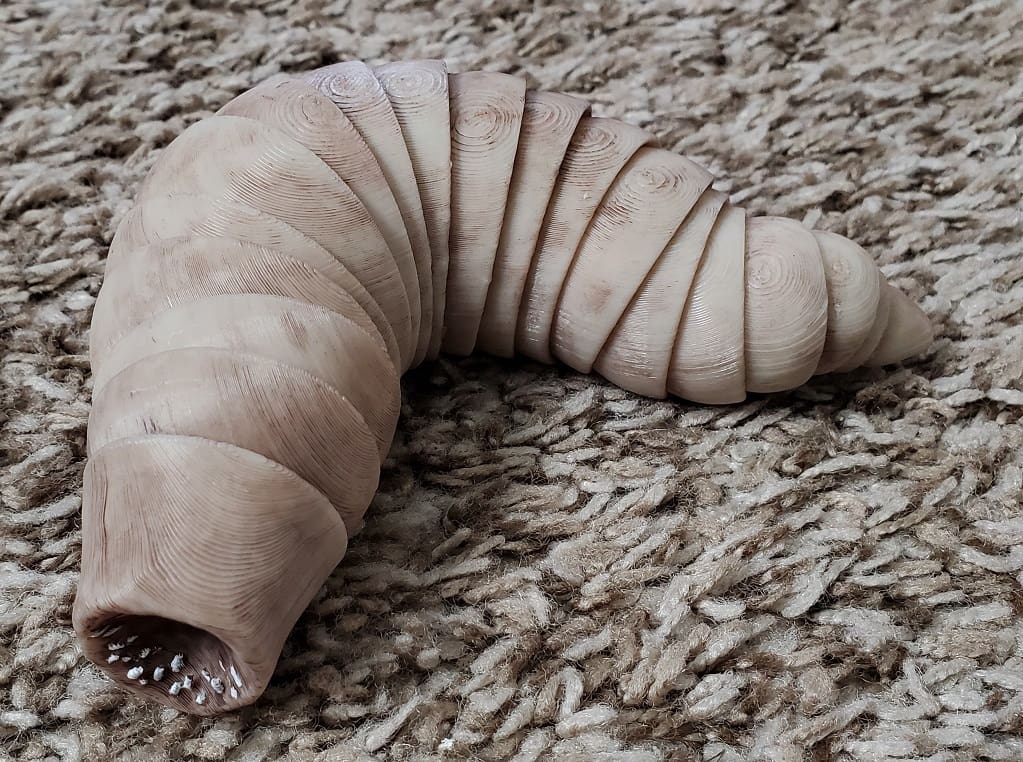
When people think of Dune, they generally think of three things: desert, Spice, and worms. While it’s hard to 3D print the first two, this articulated sandworm is much easier and fun to boot! A remix of the friendly articulated slug, this creepy crawly is at home in sand, dirt, or even carpet – prime hunting territories for the apex predator.
One of the best things about a print-in-place model is the lack of supports. Just set infill to 20% and hit print. You’ll soon have an army of the creatures to take on the Harkonnens.
- Who designed it? DarkKumquat
- How printable/popular is it? This model has nine makes of different sizes and almost 3,000 downloads.
- Where to find it? Thingiverse
Gom Jabbar (1984)
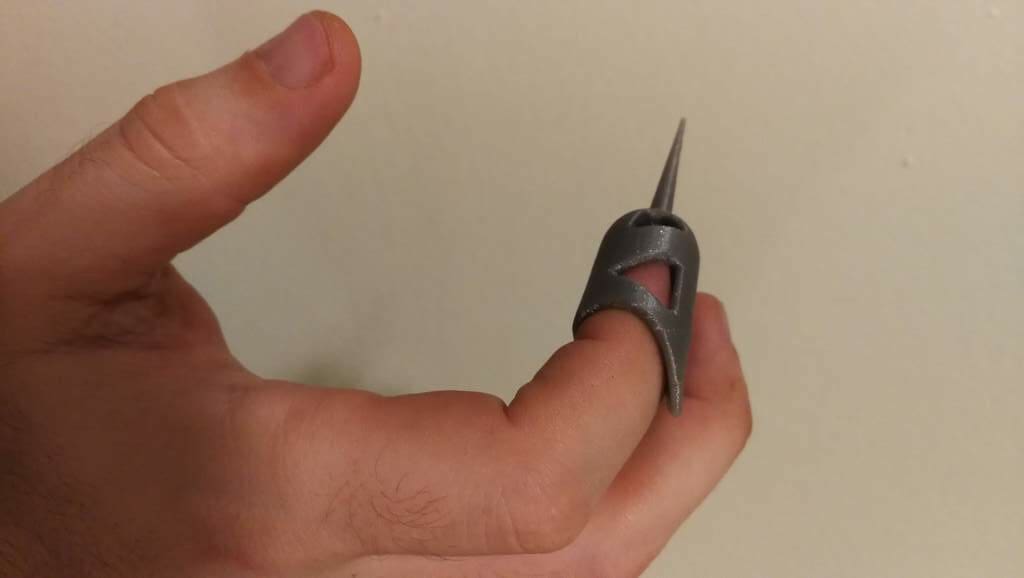
A needle coated in a fast-acting poison, the Bene Gesserit used it as a deadly deterrent in their “test of humanity”. If the test subject reacted to their animal instincts and pulled their hand from the pain box, the Gom Jabbar would be plunged into their neck. If their awareness of the needle was greater than their need to stop the pain, they would pass the test. Perhaps nothing else in the Duniverse encapsulates the high stakes and incredible pressure the characters are under.
This model comes from the 1984 David Lynch film adaptation, but the design from the latest film is also available. As it’s an awkward shape, it’s recommended you print with supports, needle-side up. Alternatively, you could print needle down, using fewer supports (though more sanding).
- Who designed it? EngineerErrant
- How printable/popular is it? This deadly little needle currently has one make and over 1,000 downloads, not bad considering how few people undergo a Bene Gesserit test of humanity.
- Where to find it? Thingiverse
Ornithopter (2000)
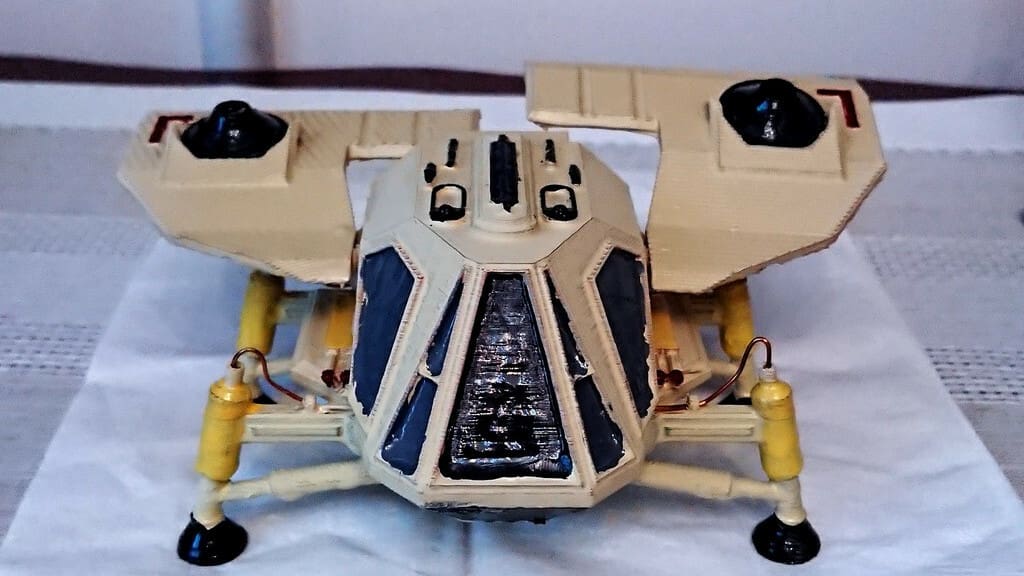
The Ornithopter is the main method of getting around Arrakis, as anything land-based has the tendency to attract great sandworms. As such, everyone had their own designs, from the Harkonnens to the Atreides. This is the Atreides model from the 2000 Dune miniseries; the latest version can be found further down this list.
The model’s wings print separately from the main body and can be attached by 3-mm screws so that they can flap like in the miniseries. The body requires supports, as the legs hold it too high off the build plate to be printed flat.
- Who designed it? poblockim
- How printable/popular is it? Currently sitting at one make and almost 2,000 downloads, interest may spark again with the new movie out.
- Where to find it? Thingiverse
Atreides Signet Ring (2021)
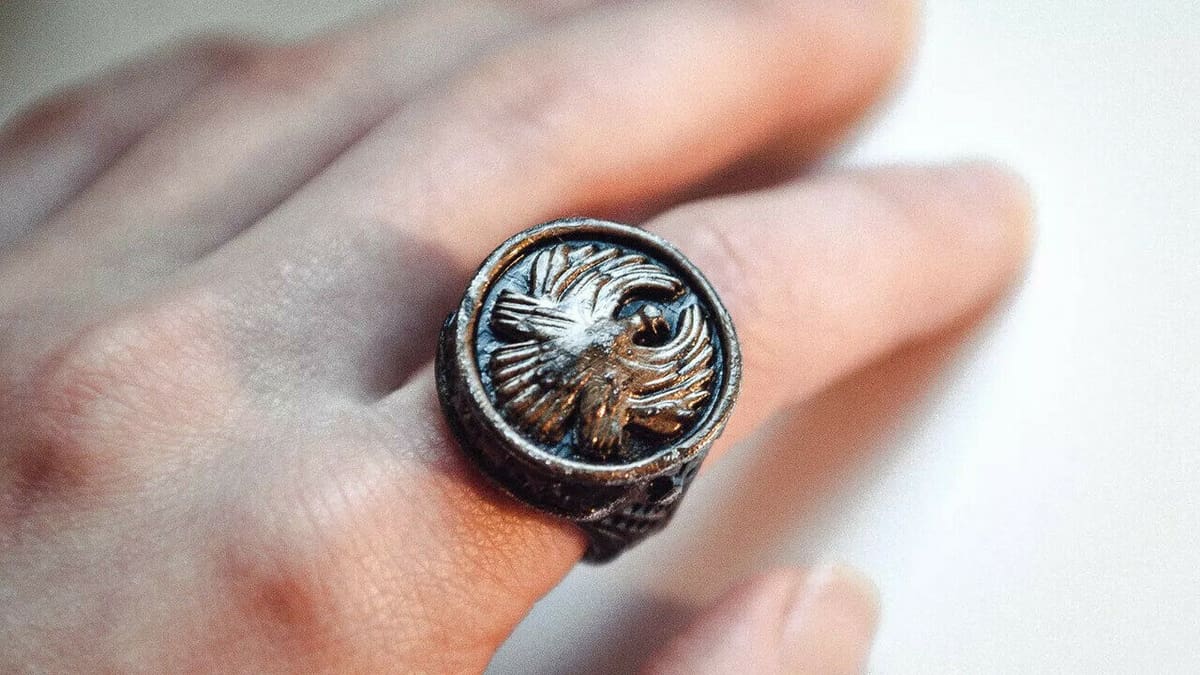
The symbol of the House of Atreides itself, the ducal ring is a prize that Baron Harkonnen wants badly, symbolizing his triumph in the generations-long feud between the Houses. Fortunately, the ring is given to Paul, who carries on the family legacy of honesty and goodwill, even while in the unforgiving desert on Arrakis.
While the creator strongly recommends printing this on a resin-based 3D printer, they do give instructions for FDM printing as well: 0.1-mm layer height, 15% infill, and supports at a 45-degree angle.
Sandworms
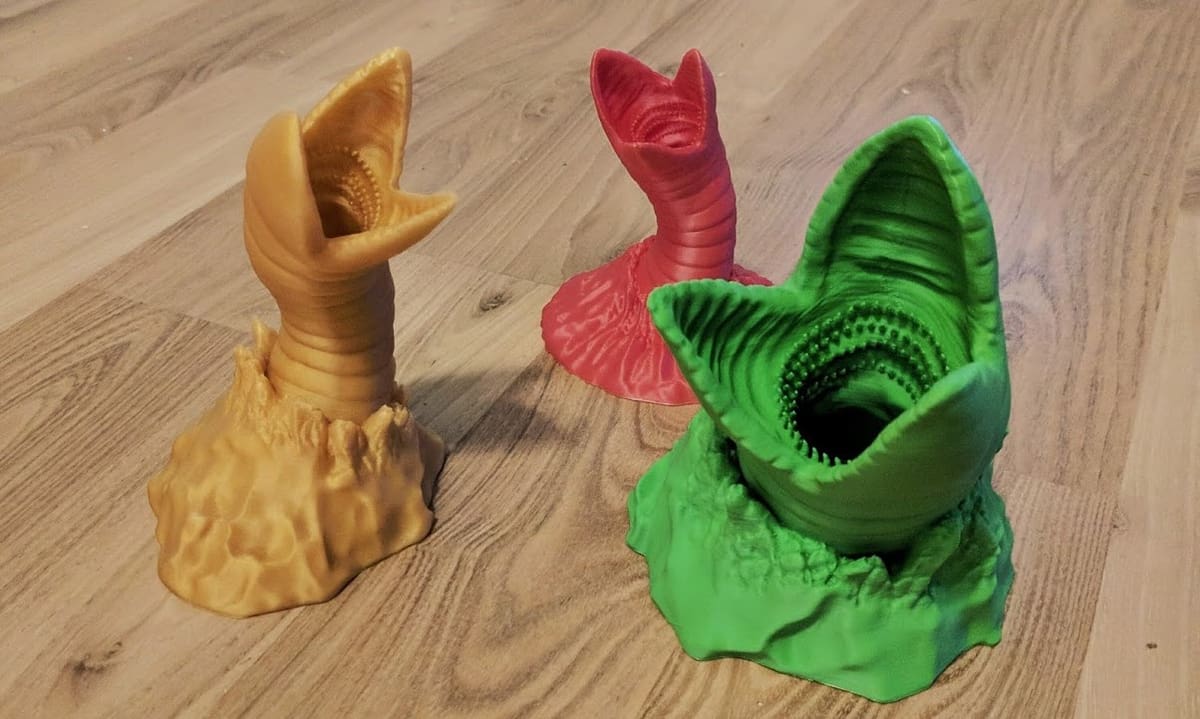
What do you call a group of sandworms? An Armageddon. Sandworms on Arrakis are a problem. They’re massive, invulnerable to most weapons, and drawn to any kind of rhythmic vibration like walking. When it crests out the sand and opens its mouth, that’s when things are truly dire.
Don’t let the picture fool you; these models are massive, taking most of the build volume of smaller FDM printers like the Ender 3. Supports aren’t needed, and the author recommends printing at around 10% infill to compensate for the size.
- Who designed it? kijai
- How printable/popular is it? With over 8,000 downloads and 21 community prints, it’s one of the most popular models on this list!
- Where to find it? Myminifactory
Storm Marker
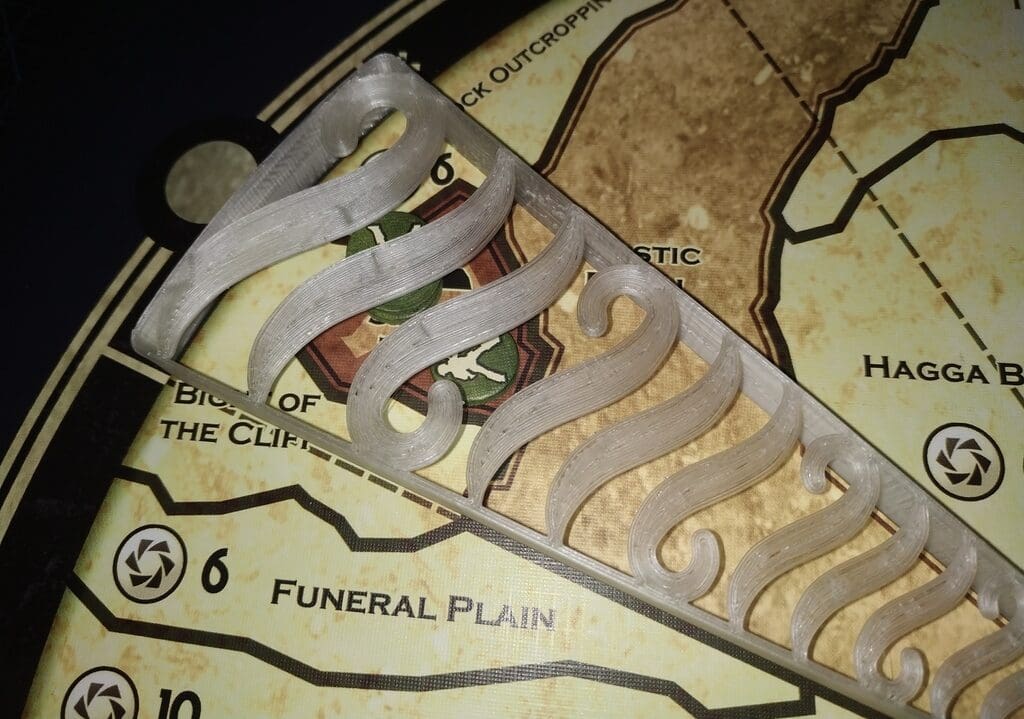
Made for the boardgame by Gale Force Nine, this pie-shaped printed game piece reminds players of the ever-looming threat of a sandstorm, forcing them to rethink their plans. There are two versions of this model, including one on legs that allow you to put game pieces under it. You can print both without supports or rafts, as long as you rotate the 2nd model so that the legs are sticking straight up in the air.
- Who designed it? dwimeijer
- How printable/popular is it? With a make and a few hundred downloads, this item is a bit niche but still amazing if you’re in the market for board game accessories!
- Where to find it? Thingiverse
Ornithopter (2021)
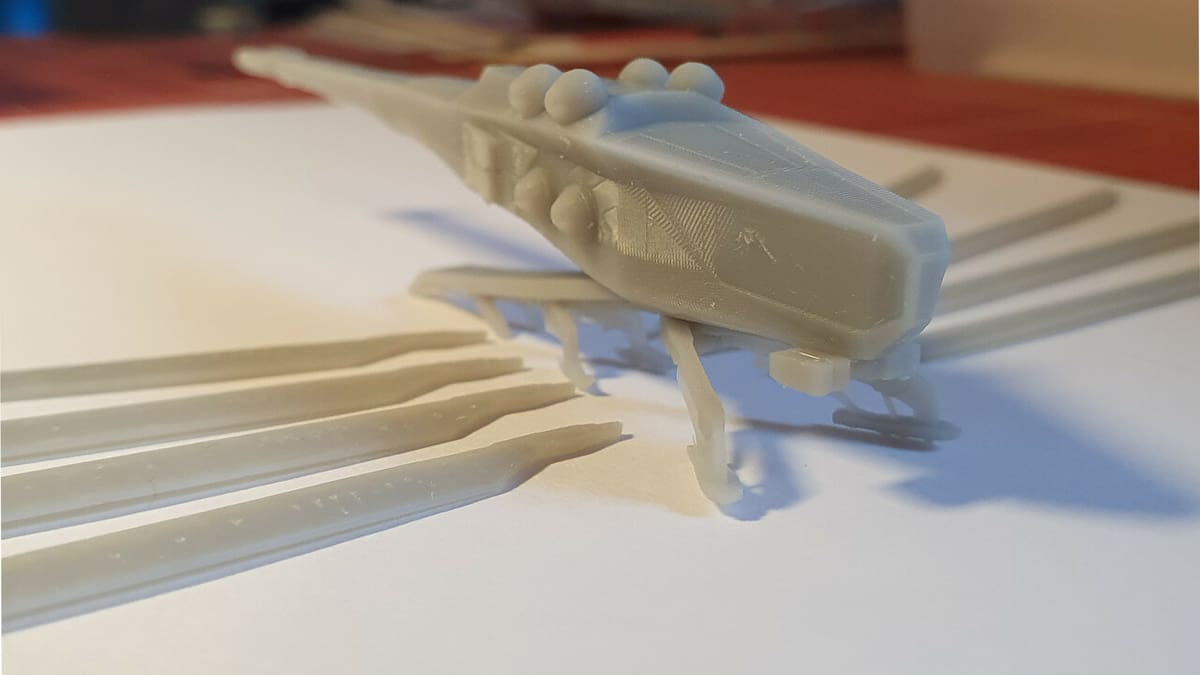
The ornithopter redesign for the latest movie was helmed by director Denis Villeneuve himself. In an interview, he expressed wanting a “shape inspired by a dragonfly, that would be muscular and feel realistic, and close to the spirit of a helicopter.” Thingiverse user CyrusZ faithfully sculpted this vision in miniature, creating a figure that looks ready to leap into the air at any second. Each wing acts separately but in concert, creating the illusion that such a machine could exist in the real world.
Like the 2000 version, the leg struts keep the body of the ‘thopter above the build plate, so you’ll need to print with supports. The wings will print flat to the build plate, as shown in the image above.
- Who designed it? CyrusZ
- How printable/popular is it? So far, only one Make has been shared. It was posted only recently, so others are likely to come.
- Where to find it? Thingiverse
Atreides Bull Fighting Statue
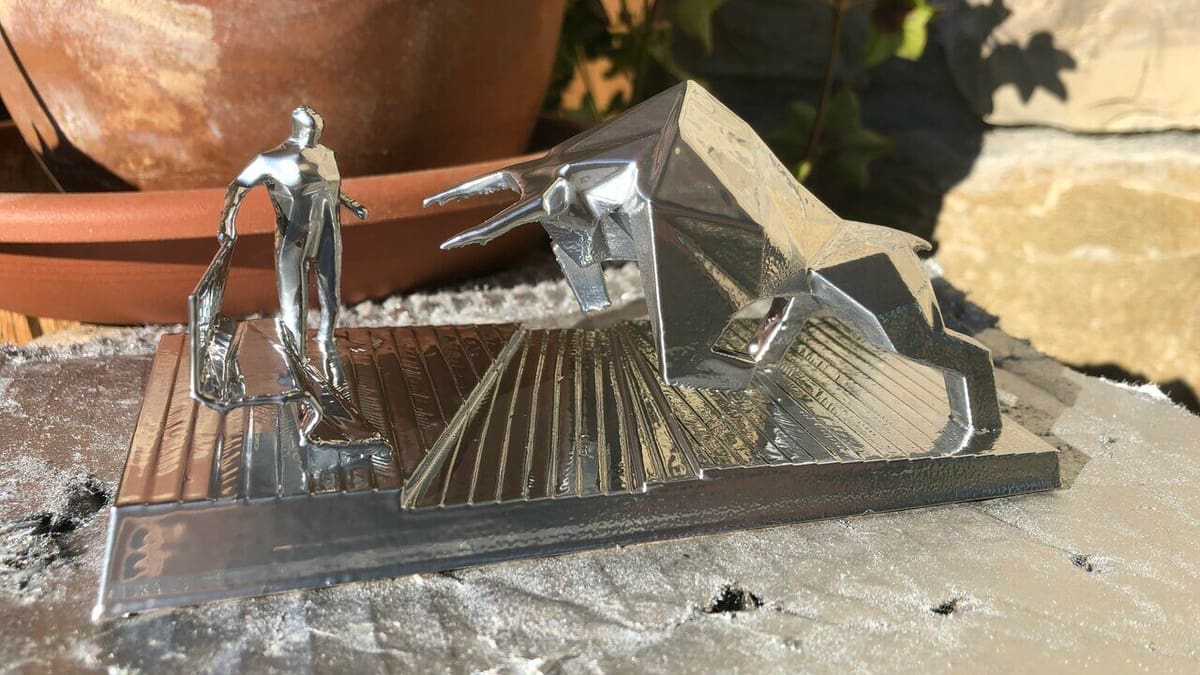
Bullfighting is central to the Atreides family, both historically – Duke Leto’s father died in a form of bullfighting – and symbolically, taking on threats that could crush them with a misstep.
The blocky, low-poly bull fighting statue shown in the background of several scenes in the 2021 movie caused quite a stir among 3D printing enthusiasts, with loud calls for someone to sculpt the model so makers could have their very own. Several versions exist, but we’re focusing on the one offered for free by Kejnao.
For easier printing, this model has been split into three pieces (bull, fighter, and base) by Thingiverse used ylbisley. The maker suggests printing with a 20% infill. Both the bull and the fighter will need supports.
- Who designed it? ylebisley (Original model: kejnao)
- How printable/popular is it? The model currently has a Make as well as this Remix. People are clamoring for this model on the Dune and 3D printing subreddits, so expect that number to rise.
- Where to find it? Thingiverse
Sandworm Bookends
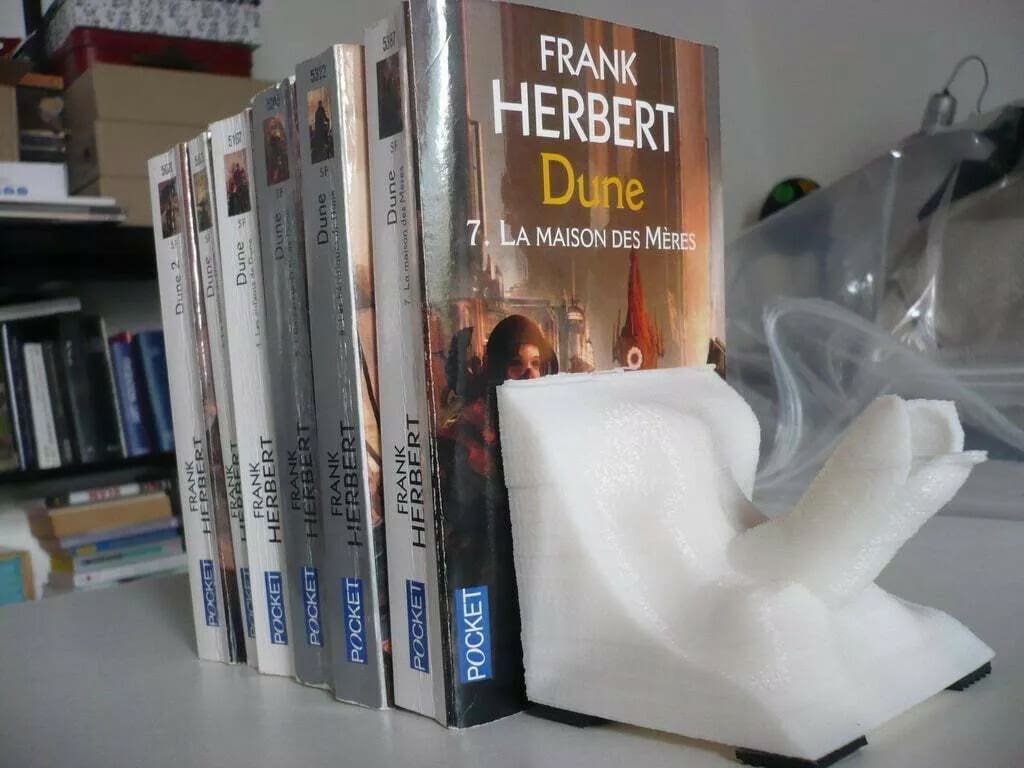
The last sandworm on our list is arguably the most important, as they contain something more precious even than spice: books! These are a must-have item for anyone who is a fan of the Dune series, keeping them safe and protected from falling over due to rhythmic vibrations.
You can print this model at 20% infill, and you should stick non-slip padding underneath the model to hold your books in place. Depending on your setup, you may need supports, as the worm is at just enough of an angle that it might be problematic.
Bonus: Stillsuit Mask (2021)
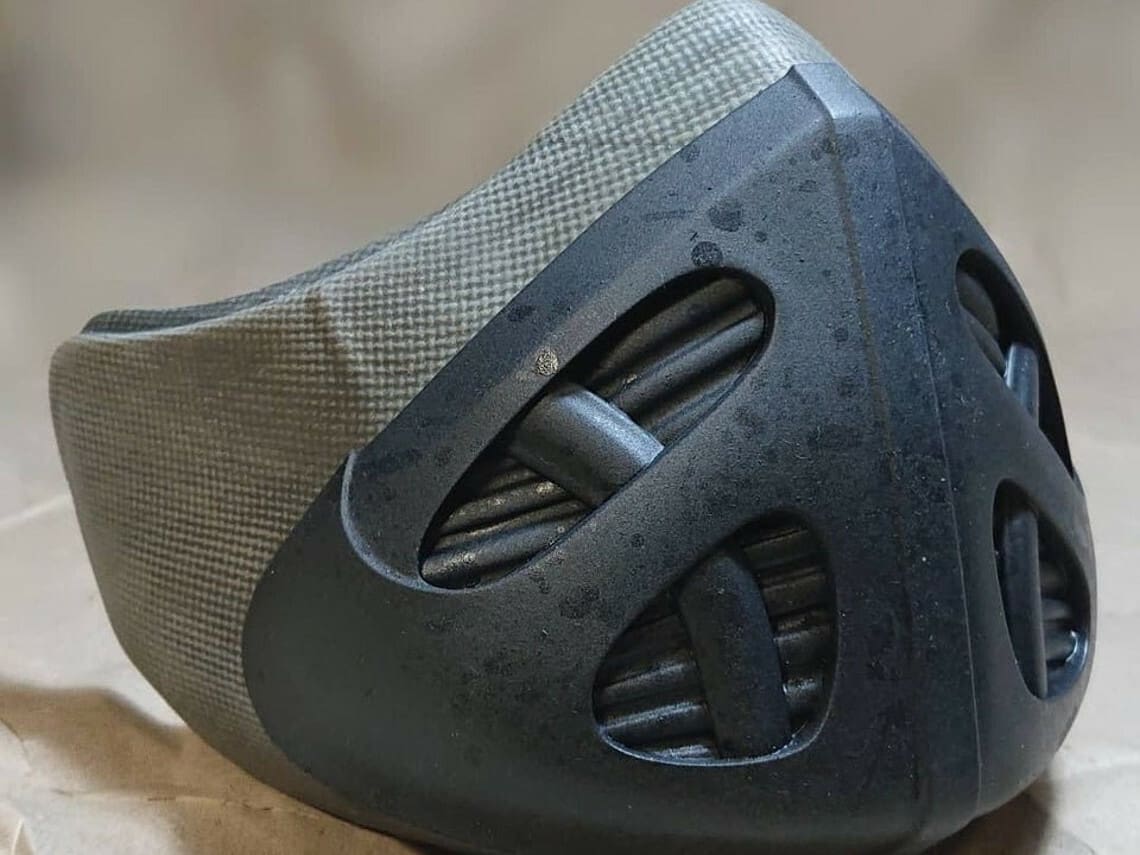
We were absolutely blown away by the simple stillsuit design in the new movie, opting for a lower face mask that covers the awful nose plugs we all know they’re wearing underneath.
This model isn’t free to download, but it’s a stunning recreation of the film. The face mask prints without supports and can be used in conjunction with a non-surgical mask when needing to go into stores, restaurants, or other public areas. We don’t recommend printing in resin if you’ll we wearing it on your face, as there can still be off-gassing after the material cures.
License: The text of "Dune 3D Print: 10 Models that Harness Desert Power" by All3DP is licensed under a Creative Commons Attribution 4.0 International License.


